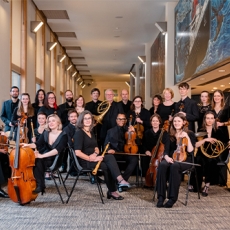Dunedin Consort - Handel: Ode for St Cecilia's Day - Gramophone
You certainly got your money's worth, both in quantity and quality, when Handel was around. On St Cecilia's Day, November 22, 1739, Lincoln's Inn Fields audiences were treated to a revival of Alexander's Feast, assorted concertos, plus a newly composed setting of Dryden's Song for St Cecilia's Day - a good three hours' entertainment. For charm and colour few Handel works match the new Ode, as it became known. In a succession of picturesquely scored arias and choruses it hymns the powers of music from the creation of cosmic order to a thrilling evocation of the Last Judgement and the life eternal.
Outstanding among a clutch of enjoyable recordings are those from Trevor Pinnock and Robert King. This new Anglo-Polish collaboration directed by John Butt is on their level, vocally and instrumentally. In the 15 years since she recorded the Ode with King, Carolyn Sampson's vernal soprano has acquired richer shadings. If her consonants can be over-softened, her poised, invariably graceful contributions are among the disc's prime pleasures: from her radiant sense of wonder in the sarabande aria 'What passion cannot music raise and quell!', in dialogue with Jonathan Manson's musingly eloquent cello; through the wistful 'The soft complaining flute', where Sampson veils her naturally bright tone (a word, too, for Katy Bircher's poetic flute-playing); to the scintillating coloratura of her final hornpipe aria, faster and snappier than in 2003.
Poise and grace are hardly the issue in the extrovert tenor numbers, fashioned for that Handelian stalwart John Beard. Ian Bostridge, in fine, robust voice, never lets you forget that something urgent is at stake, whether in the mounting bellicose excitement of 'The trumpet's loud clangour' or the jealous frenzy of 'Sharp violins', egged on by splenetically spitting strings. The 28-strong Anglo-Polish chorus do not always make as much of Dryden's delightful text as the choirs in Pinnock's and King's recordings but they sing with full, fresh tone and incisive attack. Under Butt's lively and sympathetic direction (which includes properly shaped bass lines), both framing choruses generate an apt Handelian majesty, though I wish he had encouraged a hushed, awed choral tone at Dryden's vision of the 'last and dreadful hour'.
Choice between Butt's recording and its two immediate rivals will boil down to individual taste. My own narrow preference is still for Pinnock, not least for the mingled warmth and grandeur Felicity Lott brings to the soprano solos. But no Handel lover is likely to be disappointed with a disc whose attractions are enhanced by a vivid performance of the A minor Concerto grosso (its opening movement truly affettuoso) and Butt's own superb, wide-ranging booklet essay.




